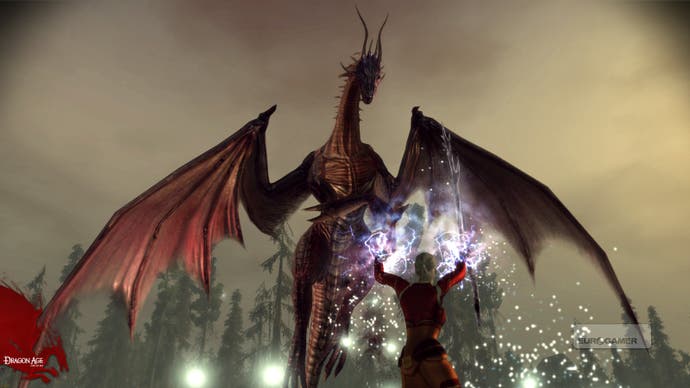BioWare's Dr Greg Zeschuk
At length on making Dragon Age, the toolset, and the merger with Mythic.
That early announcement was about keeping people on focus that we're actually still working on PC, not just on console, because we'd done a few console things and we were like, "Hey, don't worry PC folk!" Typically at BioWare we've always got a couple of things going that aren't public, that's why we can be coy in interviews. Sometimes they see the light of day and sometimes they don't, so the reality is that Dragon Age was probably announced much earlier than we would normally announce it, because after that early prototype we went to a very intensive period of probably two years' pre-production, kind of conceptualising the world and writing the history and all that stuff.
With RPGs you have to fill out the richness of the world before you can really create the game, because otherwise there's nothing to hang the story on: no context, no terminology. If there's no political system that's clear, then you can't really make politics part of the game. Someone making a driving game doesn't usually thing about that stuff, whereas we actually - whether it's being foolhardy - that's one of the things we really do focus on.
We love all those complicated elements. The team sits down and thinks of ideas and we work on it and document and document until the team finally has a source book. One of my favourite things I ever read at BioWare was this huge source book for Jade Empire. It was, like, 150 pages: very much like if you ever read any of the Dungeons and Dragons source books. That's basically what it was. Once that source book is compiled, typically it will have the culture, the politics and the history of the world, and if there's gods in the world, who they are, and all these things. And every team member has to read it when they join the team, so they familiarise themselves with the context. Where it's used is providing the richness, and I think the thing that really makes the world successful is the consistency.

For example, I was playing Dragon Age on the airplane, and so I'm having to find the ashes of this dead god in the game, and I'm there at this temple and priests have been chanting and one of my characters - this irreligious character - makes some snide comment about the god that is contextually appropriate, and it just ties together so well. If you didn't have that depth, it would be, "Go get this thing and bring it back." It's like the classic fetch quest from an MMO: get me five pelts. But if the pelts have an important meaning in the world and the creature who has them is mythical in nature and has special powers and they've been around for this long and they've played this part in the world, that makes it a lot more worthwhile to get those pelts.
